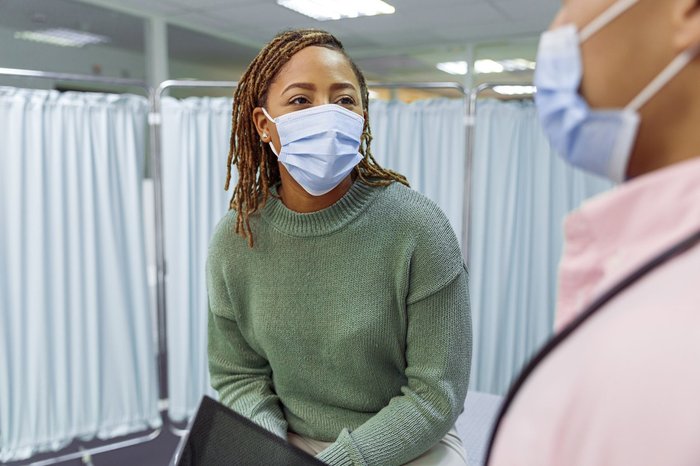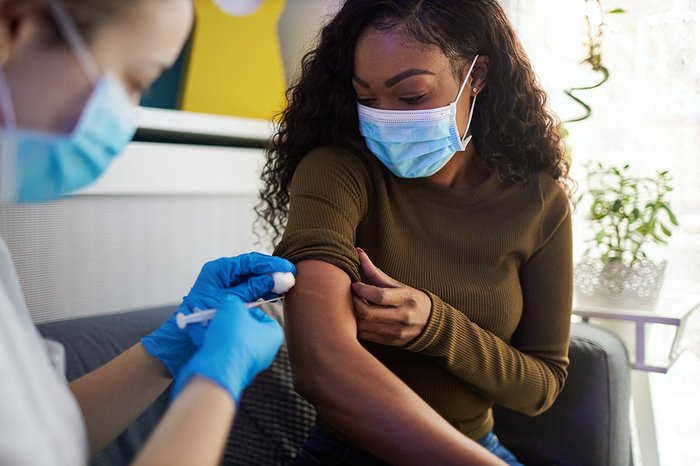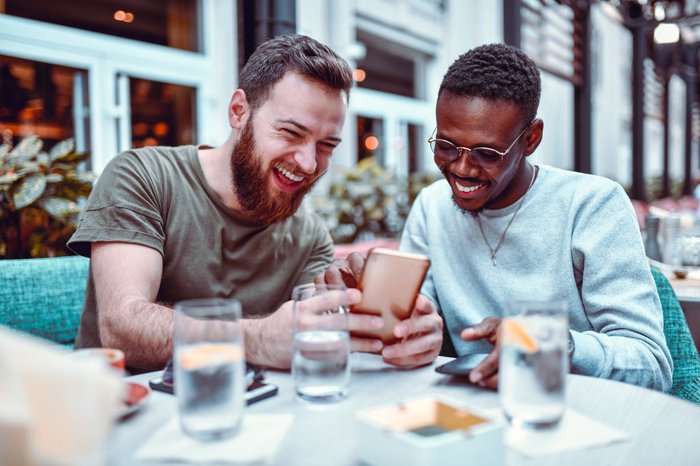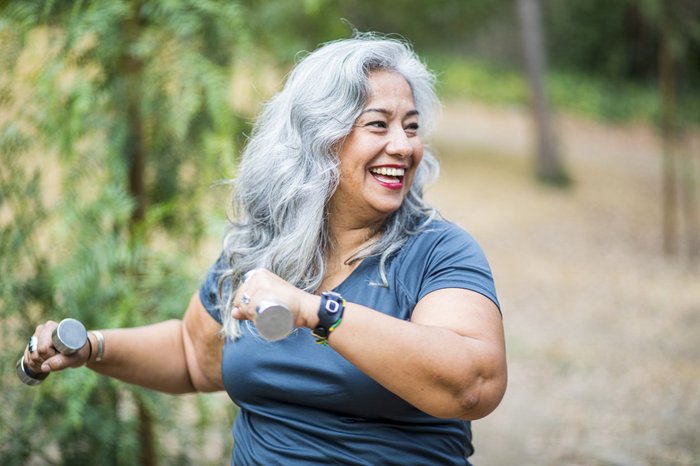Covid-19 and kidney disease
Generally, people with moderate to advanced chronic kidney disease (CKD) are at increased risk from severe illness with Covid-19, although the level of risk is now lower than early in the pandemic.
It is important to follow advice about how to keep safe. However, many people with CKD who catch Covid-19 recover well at home.
How likely you are to catch Covid-19 depends to a great extent on how much the virus is passing from person to person in your local community. This changes over time. You can further reduce your risk of catching Covid-19 by following measures you will be familiar with, such as by avoiding crowded indoor areas.
How likely it is that you will become seriously unwell if you do become infected with Covid-19 depends on many things. This particularly includes your age and whether you have other health conditions. You can discuss your individual risk with your renal team, who can help you think through your own situation.
Recent data for kidney patients shows that the risk of hospitalisation and death from Covid-19 has fallen substantially:
- Fewer than 2 in 100 people who contracted Covid-19 had to be admitted to hospital.
- Of the very few people who were admitted to hospital fewer than 1 in 4 died.
This data was collected from people with kidney disease who received a Covid-19 treatment (Sotrovimab or Monulpiravir). These treatments are for people at highest risk from Covid-19 (CKD 4 or 5, on dialysis or with a transplant) and are only given if symptoms are not resolving quickly by themselves. It is positive, therefore, to see that hospitalisation and death is very rare even in higher risk kidney patients who were feeling unwell with Covid-19.
While it remains important to protect yourself from catching Covid-19, nowadays the vast majority of people with kidney disease who contract Covid-19 will feel unwell but be able to recover at home without needing to go into hospital.
The improvement in outcomes for people with CKD is partly because of vaccination and treatments, but also because hospitals have learnt so much about how to look after people with Covid-19, including those with kidney disease.

I only have one kidney. Am I at risk?
Having only one kidney does not put you at increased risk on its own. If your kidney function is normal, you will not be at increased risk.
If your kidney function is reduced due to chronic kidney disease, your risk may be increased due to the CKD rather than from having just one kidney.
If your kidney was removed for health reasons, it is possible that the health reasons leading to your kidney removal will increase your Covid-19 risk.
Are people with kidney disease affected by long Covid?
It is likely that people living with kidney disease have developed long Covid, but we do not know at this point whether they are more at risk than other people.
The NHS Your Covid Recovery is an online service for those who have had Covid-19 but who have persistent concerns related to areas such as breathing or mental health (including long Covid). This service hosts information about how to manage ongoing symptoms and health needs at home and on returning to work.
Does having Covid-19 affect your kidney function?
The risk of Covid-19 worsening kidney function and putting transplants at risk has significantly reduced since the beginning of the pandemic. This is because, in general, people with kidney disease are not becoming as severely ill with Covid-19 as they were at the beginning of the pandemic.
There is no data suggesting that Covid-19 leads to worsening kidney function in people who are able to recover at home.
The kidneys of people with kidney disease who are admitted to hospital with Covid-19 are a bit more vulnerable and their function may worsen, as often happens if in hospital with other illnesses. This might mean a temporary spell on dialysis, where it was not previously needed. However, in most cases, kidneys will recover.
If you were already close to needing dialysis, it might be that being sufficiently poorly with Covid-19 to need a hospital admission means that you have to start dialysis sooner than you otherwise would have.

How can I manage my individual Covid-19 risk?
Those at higher risk of Covid-19 might like to consider adopting the following precautions, which can reduce your risk of catching Covid-19, if it feels right for them:
- Get vaccinated. We also recommend eligible household members take up the offer of vaccination. This is the best way to protect yourself, and if you do get infected, you are much less likely to develop serious disease, be admitted to hospital or die than if you are unvaccinated.
- Be careful to avoid contact with someone who has tested positive for Covid-19 until at least 10 days after they received their positive result. Avoid people who have symptoms of Covid-19 or symptoms of other respiratory infections, have a temperature or feel unwell.
- Ask friends and family to take a lateral flow test (LFT) before visiting you.
- Meet people outside if possible. If meeting people inside, open doors and windows to let fresh air in.
- Try to reduce the time you spend in crowded, enclosed spaces.
- Wear a face covering when it is hard to stay away from other people, particularly in crowded public places. Consider asking home visitors to wear face coverings.
- Consider continuing to practice social distancing when out and about if that feels right for you.
It is also very important to follow good hygiene advice. This means:
- Frequent hand washing for 20 seconds or using a hand sanitiser.
- Avoid touching your eyes, nose and mouth. This is to prevent the virus from entering the body.
- Make sure you, and the people around you, follow good respiratory hygiene (covering your nose and mouth with your bent elbow or a tissue when you cough or sneeze. Then dispose of the tissue straight away and wash your hands).
Government guidance and information for people at highest risk from Covid-19:
Guidance on activities
Many people with kidney disease will be used to making decisions about risk. But we know for some people these decisions can be difficult.
Although the risk of catching Covid-19 does exist, it is now much lower than it was. There are other things to consider when coming to a decision about what precautions you take, and it is not a given that you will catch Covid-19 or become very ill. The impact on mental health and potentially physical health of not doing different activities must be considered. You can also do things to make the activity safer, by following the guidance above.
You can also consider a ‘risk budget’ approach, whereby people consider what is most important to them and what is less important. So, they may want to attend a family event but not a work party. If an overseas holiday is really important to someone, they could put their ‘risk budget’ towards this while taking sensible precautions like masking during the flight. But then they could minimise other activities in the period before and after the holiday.
Do I still need to shield?
Advice that people who are at highest risk from Covid-19 should shield is no longer in place. Kidney doctors have advised that, in general, although you may wish to follow the precautions described above you do not need to lock yourself away, because this can potentially harm your mental health and also your physical health.
If your clinician advises that you need to shield because of your individual circumstances, such as the treatment you are receiving, it is very important that you follow this advice.
Should I wear a face covering?
Face masks are no longer required by law in the UK. However, people who are immunosuppressed may choose to wear them in indoor public areas.
When you wear a face mask, it is really important to use it properly and dispose of it correctly, otherwise it can do more harm than good. The World Health Organisation has produced guidance on using face masks and coverings correctly.
Should I wear gloves?
No – there is no advice or requirement for kidney patients to wear gloves when they leave the house. In theory, wearing gloves might actually increase the risk of catching or spreading Covid-19 as they may provide false-reassurance (and therefore reduced uptake of more important measures such as handwashing) or allow spread of the virus when they are taken off again.
Can I go to the shops?
You can choose to go to the shops although you may prefer to try to choose a quiet time to shop.

Are people at highest risk advised they may go into restaurants/pubs etc?
You may go to pubs and restaurants. People who are immunosuppressed may choose to wear a mask, keep a distance from others and sit in an outside area, if possible.
Is it safe to travel on public transport?
You are not advised to avoid public transport, although you may prefer to travel at quieter times in possible.
Should I let people in the house for emergency maintenance?
Yes, but if someone else from your household is available, you could stay in another room and also ask the person attending to wash their hands and wear a mask. It would also be sensible to keep windows open, if possible, to improve ventilation.
Can I go to the hairdresser/barber?
Yes. People who are immunosuppressed may prefer to sit in a quieter area, if your hairdresser/barber is able to offer you this.
Can I go to the gym/play sports if I am in the highest risk group?
You may visit the gym or play sports, although people who are immunosuppressed may choose to keep their distance from other people at busy times.
Playing sports outside is low risk.

Should I be wiping down my internet shopping deliveries?
Early on it was thought that the virus could survive on surfaces, but now we know the virus is spread mainly via airborne transmission. This means you do not need to do things like wipe down an internet shopping delivery.
Should children of kidney patients to go back to school?
Yes.
Guidance about Covid-19 and schools is available for Scotland and Wales.
Should I be taking vitamin D supplements to help prevent Covid-19?
The NHS service for supplying free vitamin D to people at high risk from Covid-19 has now closed.
Vitamin D is good for you and can help support your immune system and possibly help resist infection with Covid-19, so it is important to have sufficient vitamin D. You may already be prescribed supplements, for example Adcal, and you should check with your doctor before taking any additional supplements.
Some transplant units are more hesitant about prescribing vitamin D to people in the first year after a kidney transplant, so if this is the case do check with your kidney team and you may be advised not to take vitamin D supplements.
It is important to note that there is active vitamin D, which is often prescribed by kidney units in medicines like Alfacalcidol and Calcitriol. It is subtly different from natural vitamin D. You can be low in natural vitamin D even if you are taking active vitamin D.
Check with your kidney doctor about any vitamin D supplements and what you should do to make sure your levels are correct.